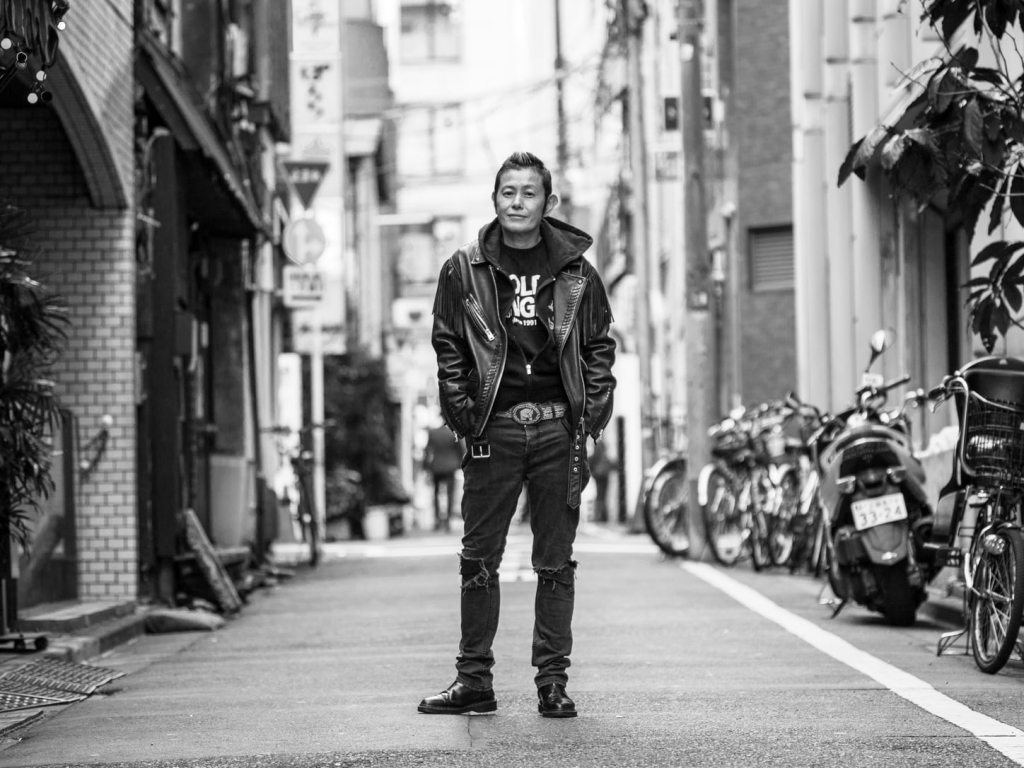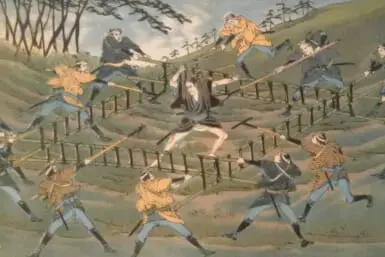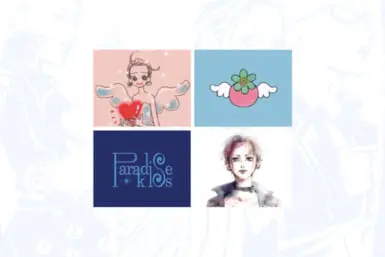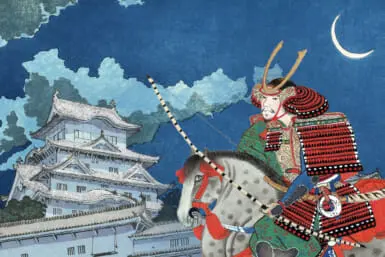“An interview about me? It’s going to take three hours!” jokes Chiga Ogawa. Affectionately known as Chiga, Ogawa is charming, witty and as quick as a whip. A born and raised Tokyoite, she started Gold Finger, a women’s only monthly party, in 1991 and opened a bar with the same name 16 years later in Shinjuku’s Nichome area. TW dropped by her bar for a chat about Nichome, Tokyo’s gay quarter, and what it means to her.
When did you first find out about Nichome?
Oh, a long time ago! I came to Nichome for the first time about 38 years ago. I was about 15 or 16. I’m 53 now. I was already aware of my sexuality and I’d heard about Nichome before. It was completely different then. I came here and I was disappointed – it wasn’t what I’d expected at all. It was dark, most places were hidden away and there were very few people around. Even now there are a lot of snack bars [small bars with one or two hostess-like staff], but in the past there were so many of them and usually on the second floor of another shop. Of course, back then, there was no internet or any other way to get any information about the area.
So how did you get any information about Nichome?
As a 16-year-old I was reading a fashion magazine called An An and there was a small piece about onabe bars [bars run by transgender men]. I was curious. It was in the area that’s now called Sanchome, a little bit away from Nichome. I wanted to go check it out so I called them. They came to pick me up because the place was hard to find. The staff was shocked when they saw me, partly because I was so young. Once I was there I was so surprised at how expensive it was. A glass of coke set me back ¥12,000! I felt like my dreams kind of fell apart. That’s why my bar, Gold Finger, has no entry fee and has reasonably priced drinks. I want everyone to be equal here. I never imagined when coming here as a teenager that decades later I’d be running a bar here myself.
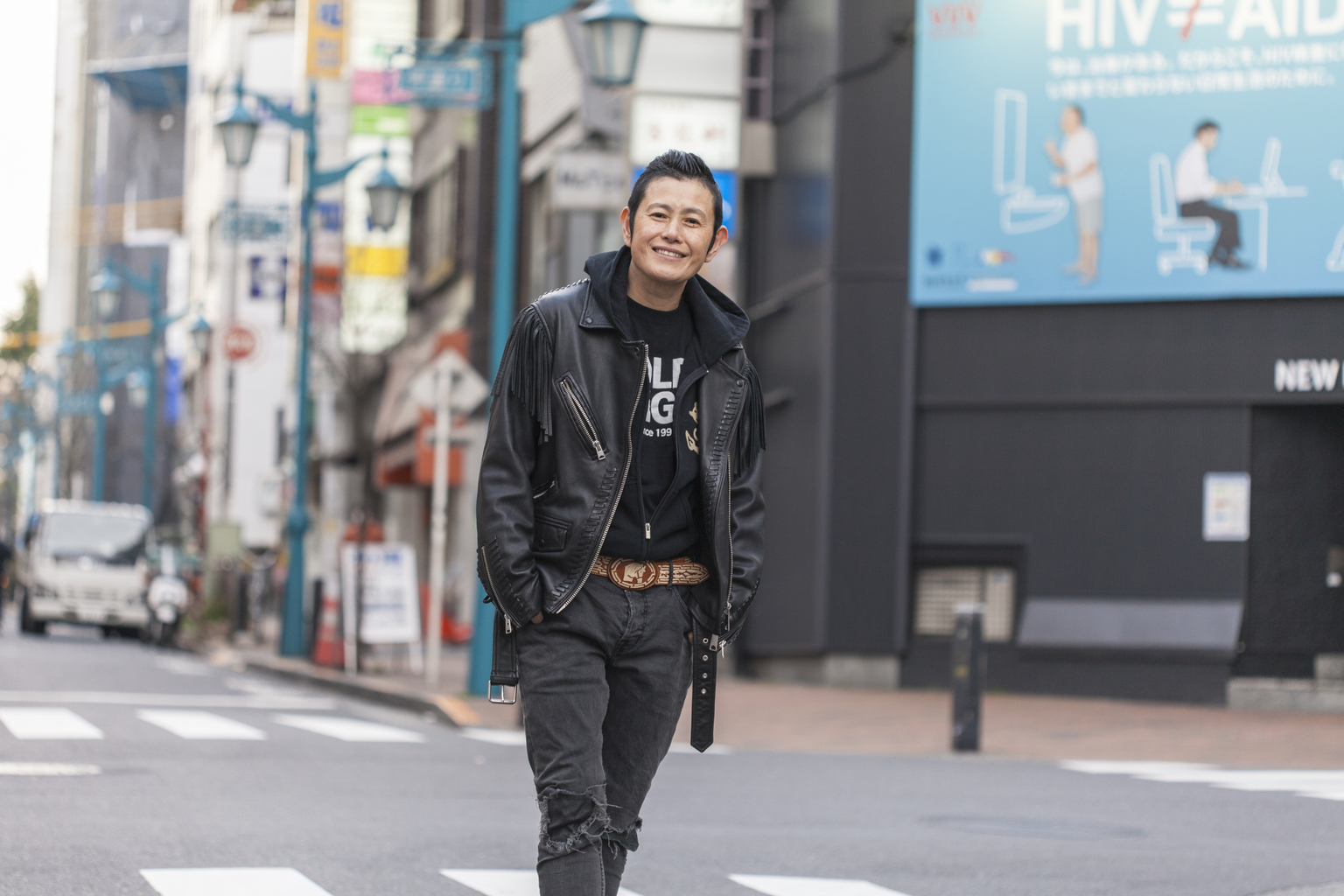
Why did you start your own event and bar?
I lived in London from 1986 to 1987 and experienced the nightlife there. It was so much more open and I thought that was really good. I loved going out and when I came back to Tokyo I went clubbing called every weekend. A gallery owner I knew in Akasaka reached out to me and asked me if we shouldn’t organize a party or something. The ’90s was the real start for clubbing nightlife in Japan so the club scene was really changing. I started the women-only parties in 1991 because I wanted to recreate what I’d experienced in London. Also, this was the era of the Spice Girls and girl power, so I wanted to make the most of that. Women-only, girl power and a burgeoning club scene. As for the name of both the bar and the event, Gold Finger takes its name in part from the 1964 James Bond movie. That, and of course, the reference to a certain something.
What is Nichome for you?
Honestly, 15 years ago, I couldn’t stand Nichome. It didn’t suit me. I’d had that jarring experience when I was younger so I didn’t come here that much. I didn’t like Shinjuku, either. But now, it’s so much fun. Places like Harajuku, Roppongi and Ginza have been cleaned up and overtaken with flashy brands, but Shinjuku hasn’t changed to that extent. It’s kind of human, cute but not perfect, just like humans are. I think it’s a lovely and fascinating place. Shinjuku has so many different faces: Nichome, Golden Gai, Kabukicho, Tocho, Arakicho. Each area has a different atmosphere.
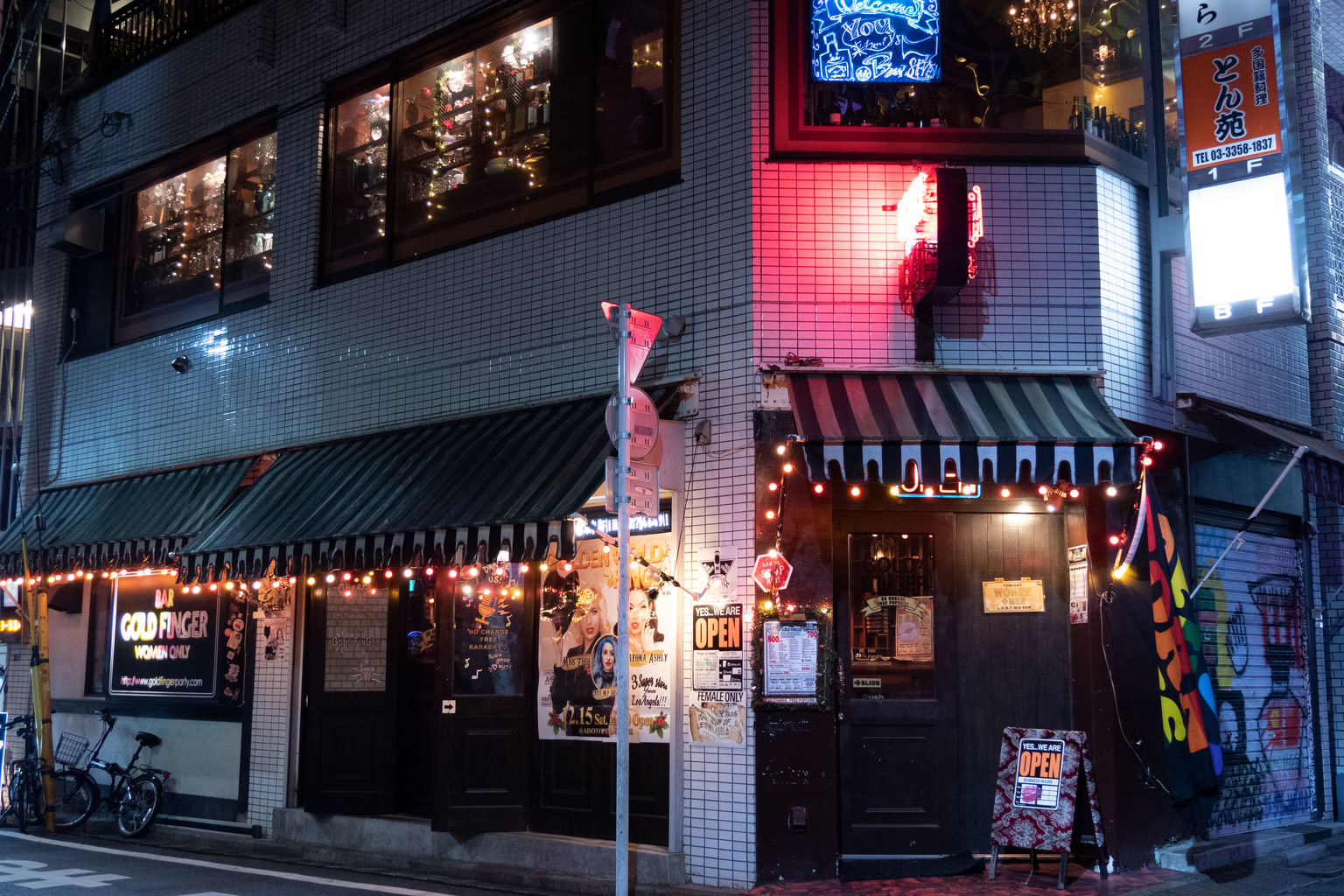
What is Nichome for the LGBTQ+ community?
It depends on the person – for some, it’s a really important place; for others, not so much. Nichome has been around for a long time and I think it’s important. In the past, when talking about sexuality, a lot of people would misunderstand. They assumed Nichome meant drag queens, like the ones they saw on TV. But that image has gradually changed. For example, the Tokyo Rainbow Pride parade in Yoyogi Park started in 1994. In 2018, the festival went on for two days and about 150,000 people from all over joined in.
Even if the LGBTQ+ community becomes accepted as part of the norm of society, I think there’s a need for Nichome. It seems like in a lot of places, like LA, New York and London, lesbian bars are disappearing. It seems like they’re not really needed anymore because of the internet and people becoming more accepting of LGBTQ+. The reason Nichome got so big in the past was because there was no internet and people living in the countryside would come to Tokyo and look for likeminded people. It was kind of an open secret where people could find partners. I think meeting people and talking face to face is really important.
How do you feel Japan fares in terms of LGBTQ+ legislation?
When you submit a registration of marriage form you have to submit two names: one under “husband” and one under “wife.” While that’s something that has been done out of convenience for the majority, legally there’s nothing in the law stating that same-sex couples are not allowed to submit marriage documents. The system is this way as [same-sex marriages] weren’t foreseen, but since other countries are opening up and allowing same-sex marriage, why doesn’t Japan?
This is why, earlier this year, some same-sex couples submitted their marriage requests together. And since none was accepted, they decided to file a lawsuit together. [On February 14 this year, 13 same-sex couples filed a lawsuit together in district courts in Osaka, Tokyo, Sapporo and Nagoya.] It’s up to the government to decide, but we’ve done nothing wrong and whether you accept it or not, it doesn’t change anything. If anything, saying you don’t accept it is like looking down on other people. But if you do accept it, the only thing that will happen is the number of happy people will increase. We’re finally in an age where love marriages are the norm and women can be treated as human beings and there’s mutual respect. So why does it matter if same-sex partners register to marry? It would make things easier. I think things will change for the better.
Bar Gold Finger opens 6pm daily. Saturdays are women only, otherwise everyone is welcome. For more info, visit www.goldfingerparty.com.
The Gold Finger Party is every 3rd Saturday of the month at Aisotope Lounge, women only.
Portraits and video by Sybilla Patrizia
Bar exterior photo by Sabrina and Carolin Riedhammer
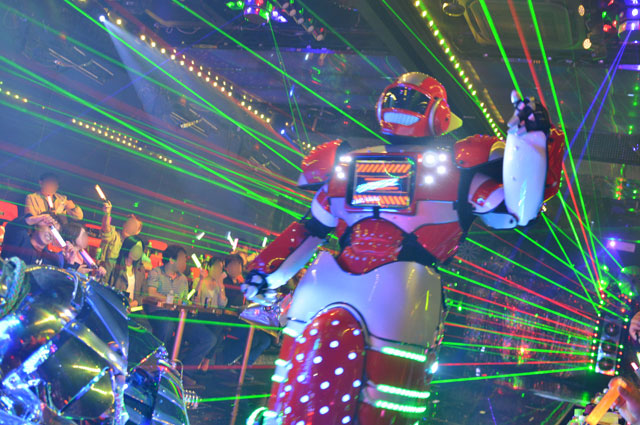
MEET SHINJUKU’S ROBOTS
34% OFF Robot Restaurant Shinjuku Tokyo Discount E-Tickets
For an extra 5% off use our coupon code TOKYOWEEKENDER during check-out.

